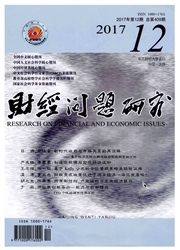

 中文摘要:
中文摘要:
环境规制的实质是一个公共选择过程。文章以皮科克的政治市场结构理论为切入点,运用公共选择理论,分析中国环境规制过程中初级政治市场、政策供给市场以及政策执行市场的特有方面。研究表明,制度结构决定了环境规制中政治市场结构的独特运作机制。财政分权与政治晋升机制使地方政府热衷于为增长而竞争。公众无法有效约束地方政府行为,而企业与地方政府在一定程度上又存在着共容利益。在政治与经济双重逻辑下,地方政府倾向于采取环境规制“趋底”的竞争策略,进而导致了环境规制失灵。
 英文摘要:
英文摘要:
Environmental regulation is essentially a process of public choice. Taking Peacock's political market structure theory as a starting point, this paper used the public choice theory to analyze the unique aspect of primary political market, policy supply market and implementation market in the process of China's environmental regulations. Research shows that institutional structure determines the unique mechanism of political market structure in the process of environmental regulation. Fiscal decentralization and political promotion mechanisms enable local governments keen to compete for growth. The public could not effectively constrain local government's behaviors, and firms and local governments own encompassing interest to some extents. In the political and economic double logic, local governments tend to race to the bottom in environmental regulation. Based on the analysis of the environmental regulation by public choice process, this paper put forward relevant policy recommendations.
 同期刊论文项目
同期刊论文项目
 同项目期刊论文
同项目期刊论文
 期刊信息
期刊信息
